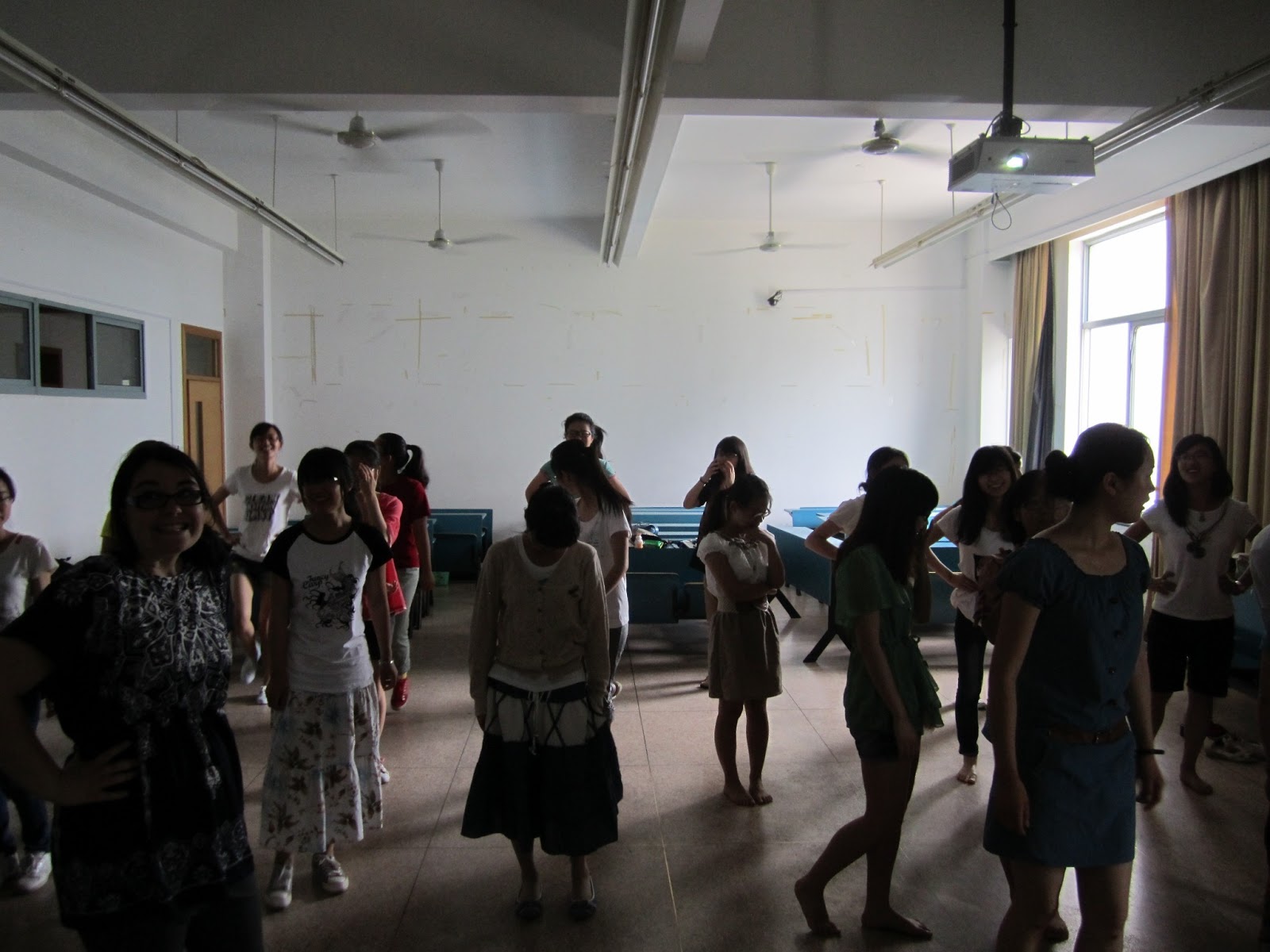So, it did not take me a long time of teaching to notice some
pretty big differences between Chinese students and American students.
And also some huge differences between Chinese Universities and American
Universities, but for now I will focus on the students.
 |
| Some of my students being really cute on a field trip. |
Let me use a more recent example to illustrate. This
semester would be my third semester teaching in China, and the feeling walking
into my first class this semester was dramatically different from how I felt
walking into the class I described in my previous post. Not necessarily because the school I was
working for had become more forth coming with information, but because I no
longer expected said information.
Early this semester, when I was first meeting my new freshmen, I
was chilling in between classes. I taught both sections of Integrated
English (and no, I am still not 100% sure exactly what that means) back to back
with 10 minute break in between the classes. The science students had
just left, and I was waiting for the Arts students to file in. Which they
did. And in America, if you still had 7-10 minutes before class started,
you would be most likely to fiddle with your phone, talk to your neighbor, etc.
Well, these students filed in and sat down and stared (and I am fully
aware some of this reaction was because I was foreign and they were freshmen).
They did not speak, they just sat down and watched me. (I actually
left and took a 5 minute walk before the class finally began, because it was
creeping me out a little and I did not know any of them yet, to start up a
conversation).
In almost every class I have taught, the reaction of Chinese
students to instruction is to listen passively. I have had to come up
with creative ways to get them to speak in class, from bribery to threats
to coercion. They will not volunteer
information. Mostly because they fear
being wrong. And in most Chinese classes
there is always a right or wrong answer.
Also, in most Chinese classrooms, the teacher will simply give them the
answer, with a token 5 second pause, after asking a question. Many of their
courses are straight regurgitation and it is what they excel at. I have had students who have had no
familiarity with material memorize huge chunks of data in a very short amount
of time. Which is undoubtedly
impressive.
 |
| Sometimes when they refused to speak, we did a little kinesthetic warm-up: Dance. We eventually decided answering my questions was a better idea. |
However, when I ask students to synthesize that data, to create
something that is not directly retrievable from some text or other source, they
struggle. And they fear to volunteer opinions
or speculation as these things are not guaranteed the ‘right’ answer. In fact, when I taught a reading course and
informed my students that there might not be only one right answer, some of
them looked downright scared. And so, it has been somewhat frustrating,
especially in Oral English courses, were students are expected to speak, or in
some of the critical thinking courses, where students are expected to create,
rather than simply expel memorized data.
Conversely, with American students, it is difficult to get them to
stop talking once they start. And they
do not even have to be particularly well versed in the knowledge in order to
feel comfortable sharing their opinion. Many American students relish the opportunity
to create something, rather than simply answer multiple choice questions or
write an essay about it. And in America,
we value this talent, and try (when you can dodge state testing, that is remarkably
similar to testing in China…) to cultivate in our students. American teachers and schools generally—and least
ideologically—understand that this is the best way some students can
demonstrate their knowledge and understanding of curriculum.
This is not true in China.
Every test they take is based on rote memorization. Even, to an extent, the Oral Exams. And this
is no small skill, the amount of data students are expected to memorize, but it
creates students that are vastly different from what teachers in America have
been equipped to teach, and so many new teachers here spend their first months increasingly
frustrated, and I am no exception.
It does get better J

No comments:
Post a Comment